
Hachi cast
Parker Wilson never planned to fall in love with the stray Akita he met at the train station. And Richard Gere never intended to be moved by the story of a small dog from Japan. But sometimes, when we are neither searching nor expecting, life brings us a beautiful surprise.
Hachi: A Dog's Tale is just that.
How the Cast Came Together
For Hachi, the stars aligned. And, those stars were Richard Gere, Joan Allen, Jason Alexander and Cary-Hiroyuki Tagawa. All supremely-talented and right for their roles, the entire cast feels divinely created.
During the first meeting to discuss casting, Vicki Shigekuni Wong (the producer who inspired Hachi: A Dog’s Tale) had no doubt who was right for the role of Parker, Hachi’s devoted master. “The first name on my mind was Richard Gere,” she said. "And everybody agreed. I guess it was fated."
Richard Gere
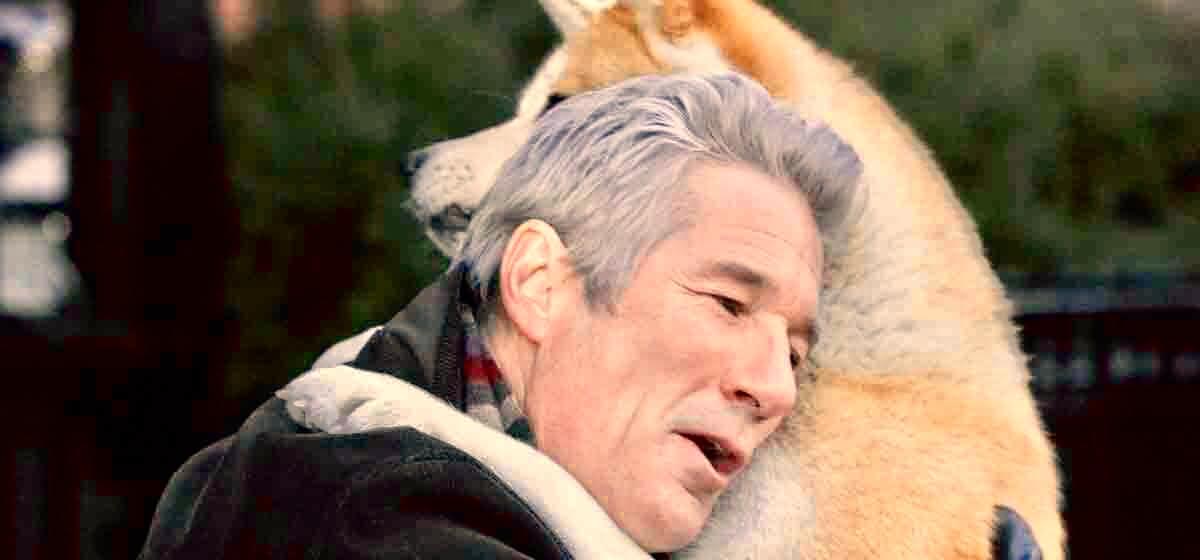
From the very beginning of the story, Gere’s character overflows with compassion for Hachi, much to the chagrin of his wife Cate, played by Joan Allen. Cate does not want Parker to keep the lost Akita puppy he brings home one night from the train station, but he can’t seem to shake him. Parker feels a connection, and he feels needed, and this is where his integrity comes into play. According to Gere, his character “Parker is the ’given’ in this story. The relationship he has with the dog is based on a very non-rational connection. That really interested me.” Parker is as loyal to Hachi as the dog is to him.
Gere felt that capturing a sense of forgiveness, generosity and acceptance was vital to the tone of the film. He also wanted the film to expose the essence of small town and family relationships like, he said, “the way people know each other without commenting on it, not being in each other’s faces all of the time, but co-existing” like Parker and Hachi do.
His agent cautioned Richard that his character dies before the end of the film. But, because the story was so moving, he gave the script to Richard. “I cried like a baby,” Gere said after reading Hachi’s story. “I said ‘Oh man, I’m gonna have to do this, aren’t I?’ So I read it again just to be sure, and it still really moved me.
I think there is something powerfully iconic and mysterious about this movie and this story of a dog that waits. There is something in the makeup of our hearts that responds to that. That sense of loyalty, that sense of 'I’m always gonna be there for you.' And it’s really, really powerful and deep stuff.”
Gere was the perfect fit for the film not just because of his talent but also because of his deep understanding and respect for Japan. Gere’s love for the country made him a huge asset. “It was important to me that we started the film in a Zen monastery,” says Gere. “I wanted the film to be suffused with a sense of spirituality and metaphysics and to pay homage to the fact that this was a Japanese story.”
Gere also understood the parallels between Hachi’s story and that of the monk tradition noting, “We definitely did not want to romanticize this idea of the dog waiting, but there’s a metaphysical aspect there. The dog is just waiting, the way a monk is just sitting, meditating. If it rains, that’s fine; if it snows, that’s fine. If I don’t show up, that’s fine. There’s kind of a purity about that.”
And, of course, he couldn’t be more right.
But, when it came to deciding what the dogs should do and how they should act, well, Gere quickly learned that wasn’t in the cards. When asked what it was like to work with the canine cast members, Gere recalls, “We created situations that would allow them to behave in any way they wanted to behave. And sometimes we would go through a day and have quite a few magic moments which would just evolve. And then we’d have times when nothing would happen, they didn’t feel like it, so we definitely were at their mercy in making this film.
We knew it was going to be about the dogs; it definitely wasn’t about me.”
Joan Allen
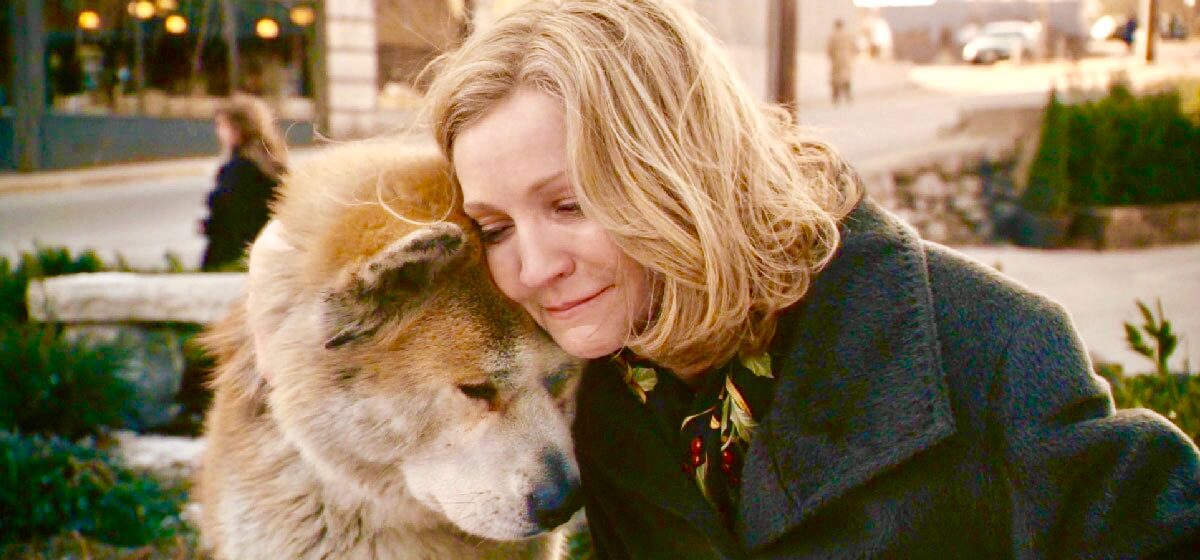
Three-time Academy Award nominee Joan Allen, who played the role of Parker’s wife in the film, said she just kind of “lost it” when she read the script. It touched her because “we live in a world where things are moving so quickly,” she said. “And the older we get, the faster time goes. And you rush around and try to squeeze it all in and there is just never enough time. You’ve always got to move on to the next thing.
I really think that is this story’s great lesson: to take time, step back and really connect with people you care about.”
Her character, Cate, is a historic preservationist whose daughter Andy (Sarah Roemer) is about to get married. Cate is ready to enjoy a more carefree life with her husband, so Hachi becomes an obstacle when Parker unexpectedly brings him home. But soon, she begins to accept, respect and appreciate her husband’s child-like bond with the dog.
“Allen was a natural choice to play Cate,” said Gere. “We needed someone for this piece who would bring enormous depth and resonance when it was needed, a real sense of gravitas and power.”
Director Hallström agrees, saying that “to work with Joan is a humbling experience. It is so wonderful to see an actress that is so precise in her work.” Allen felt that she and Gere had a very natural and believable husband-and-wife chemistry. “It’s not always something you can predict or manufacture. It just kind of exists or it doesn’t,” she said.
According to Allen, Gere’s personal values are similar to those of the committed character he plays. “I saw how deeply he cared about how this story was told, and he has really wonderful insight into the nuances of the family. He was always looking for something a little bit deeper, a little bit unexpected. And he has incredible spontaneity, ease and charisma!
"Hachi is a gentle and loving teacher of loyalty and patience and Richard Gere wraps it up nicely saying that Hachi’s waiting, and what it means to him, is beyond talking about. It is something you feel very deep in the core of your heart.”
Jason Alexander
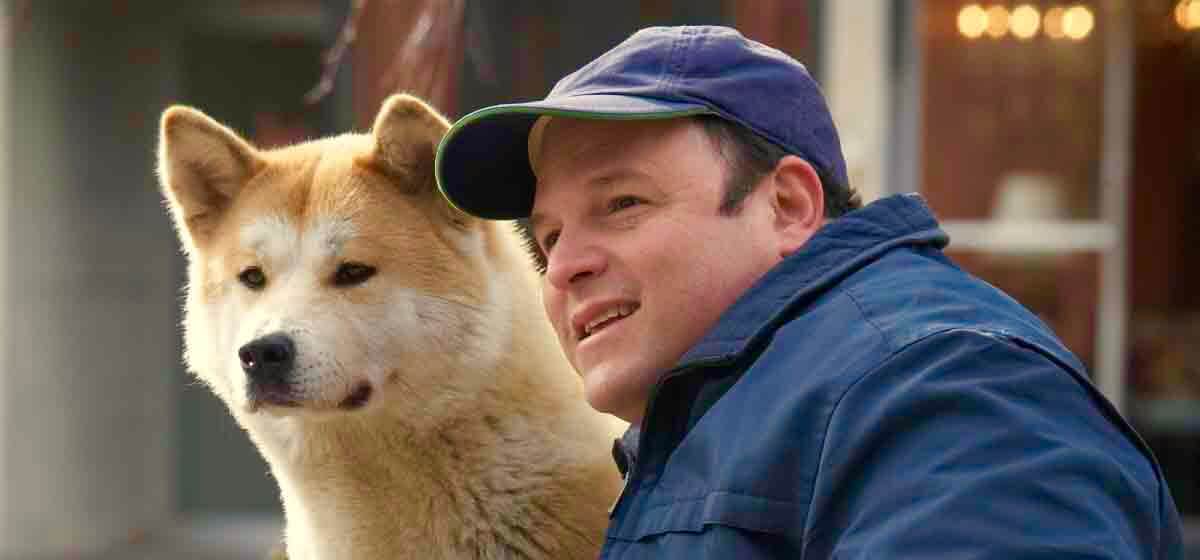
Well-known sitcom star, comedian and director Jason Alexander played Carl, the train station manager in Hachi: A Dog’s Tale. Alexander and Gere have a history, having co-starred together in the 1990 hit film, Pretty Woman. The two picked up where they left off, despite the nearly two decades that had passed between film projects.
It is Carl who encourages Parker to take Hachi home after Parker discovers the “lost” puppy staring up at him from the passenger platform of the train station after work one day. When Parker tries to turn the puppy in, Carl tells him that if he doesn’t take the puppy he will be left alone in the station all night only to be brought to the pound first thing the next morning. It is apparent that this puppy has “chosen” Parker; he can’t ignore the pull and just leave the puppy behind.
“Carl is part of this little ensemble, this little family of people whose lives are profoundly moved, along with Hachi's,” says Alexander. The other “family” members to whom he refers are Jasjeet, the hot dog and coffee cart vendor, played by Erick Avari, and Mary Anne, the book store owner, played by Davinia McFadden. These three characters are the daily witnesses to the growing bond between Parker and Hachi and eventually become Hachi’s caretakers.
Jason Alexander knew the impact the film would make, forecasting that it will take its place in history along other classic animal pictures.
“Animals sacrifice for love, they possess certain nobility about them that is oftentimes lacking in their human counterparts. Hachi's story is important because it has a profound lesson but it doesn’t bang anyone over the head. It is a quiet little story with a lot of texture and is therefore sophisticated in its simplicity.”
Cary-Hiroyuki Tagawa
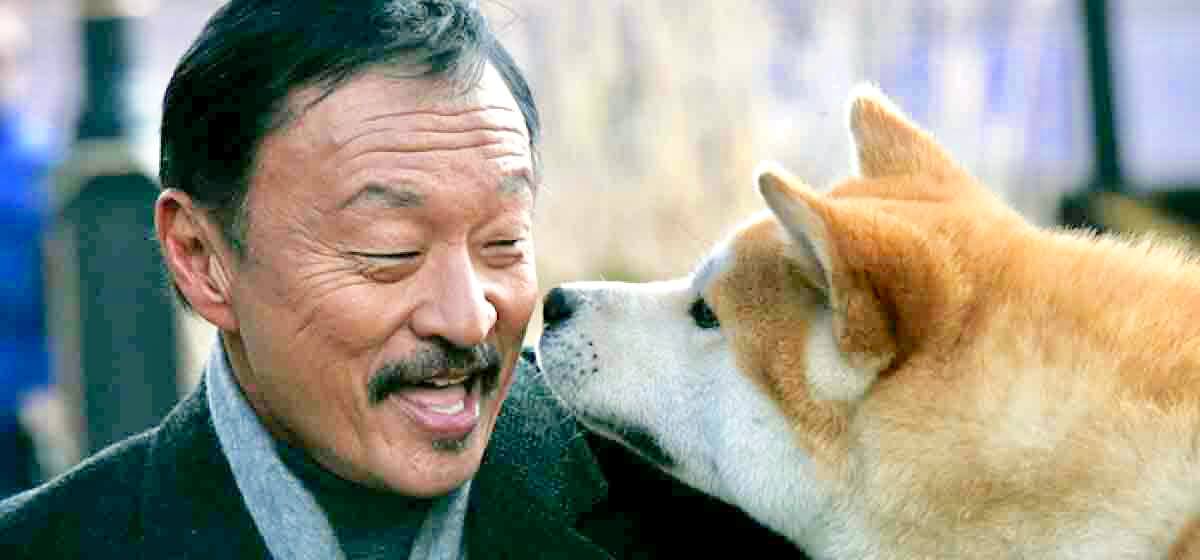
Cary Tagawa, who has starred in such films as The Last Emperor and Memoirs of a Geisha, plays Parker’s best friend and fellow university professor, Ken. An expert on Japanese culture, Ken is Parker’s “go to” for all things Japanese and all things Akita, explaining the mysteries of the dog’s nature.
Having been born and partially raised in Tokyo, Tagawa feels Gere was the perfect choice for the movie because of “his love for animals and nature, and especially because of his connection to the Tibetan Buddhists and his quest for peace. These sorts of things are very important to the Japanese people,” he said.
Tagawa personally relates to Hachi’s dedication saying, “I proverbially wait at the train station for humanity. I am literally devoted to the planet waking up.” In a meaningful scene, Tagawa’s character, Ken, discovers the number eight (8) engraved on the Akita puppy’s collar. Ken tells Parker that the Japanese word for eight is “hachi” and that in Japan, hachi (8) has a symbolic significance of connecting “the earthly and spiritual planes,” it translates as “reaching up to heaven and touching down to earth.”
It is also the symbol for infinity, tracing an endless, flowing form where one sees no beginning and no end; this is what Hachi's devotion is like. There is something about this dog’s example of love that brings heaven down to earth.
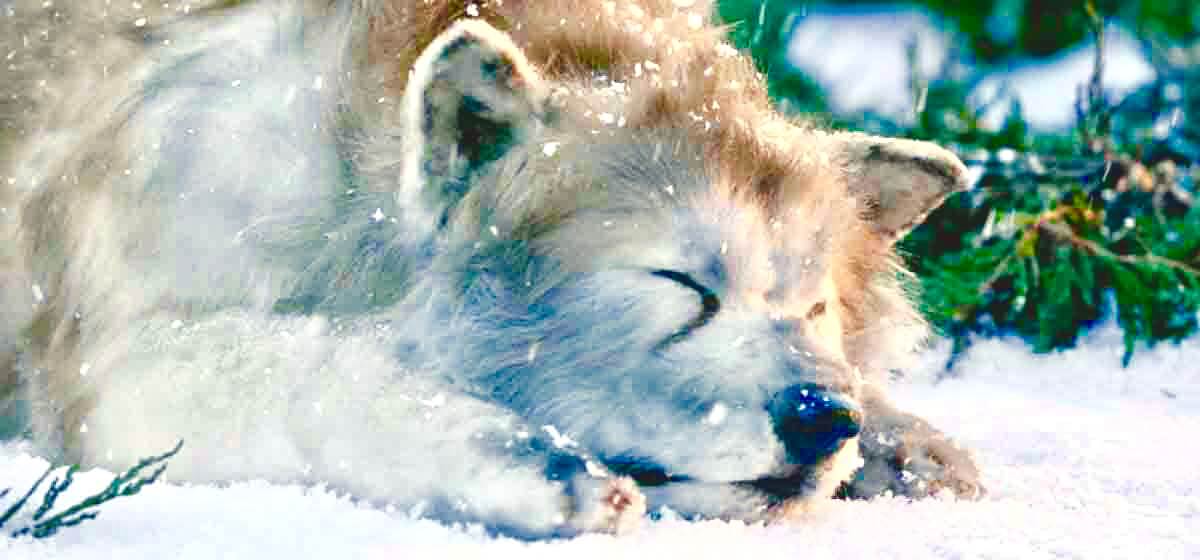
Bringing Dogs and Humans Together: How the Cast Connected
Boone Narr, a veteran Hollywood animal trainer, was on set nearly every day with three beautiful Akitas. These dogs were hand-picked from around the country and trained for over six months to play different stages in Hachi’s adult life. Wanting to do everything he could to make the film its best, Richard Gere asked Narr what the most difficult task for animal trainers is to accomplish. Narr replied, “Richard, the hardest thing in this movie is gonna be making that dog look like he belongs to you and not the trainer standing behind the camera.” From that moment on, Gere went out of his way to connect with the Akitas, hoping to garner favor with the notoriously stubborn breed.
Narr and his trainers quickly realized Akitas were some of the smartest dogs they had ever worked with - something loyal fans of the breed have always known. But, despite their sometimes stubborn nature, their ability to portray emotion is incredible, making all of the hard work put in to the training worth it. Gere himself was surprised by the dogs’ ability to portray emotion and deliver what was expected.
“They are better than us,” Gere said. “These dogs have been incredible.”
“When people in the business of acting say, ‘Don’t work with dogs or children,’ it’s not because they are difficult to work with - it is because they steal the scene!” says Narr.
Sarah Roemer
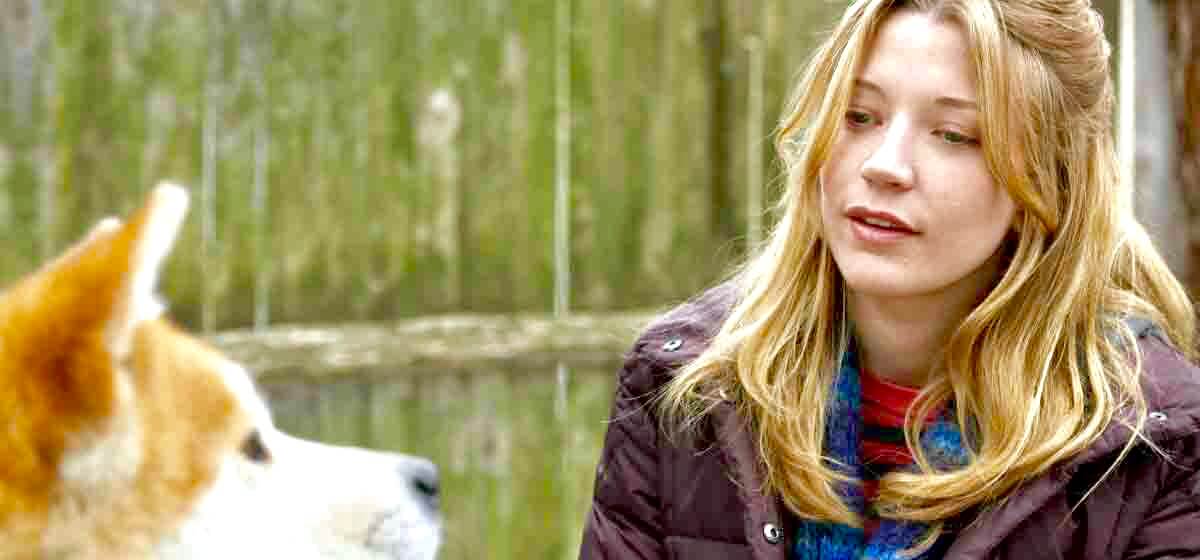
Sarah Roemer, the actress who plays Andy, Parker’s supportive daughter in the film, couldn’t agree more. “The Akitas are very human,” she says, “very patient and very calm.” Unlike many breeds that are always eager to please, Akitas are different, Roemer noted, saying how enjoyable it was to watch them on set “because they are so independent and smart, sort of blowing us actors out of the water!”
Roemer, like many of us, believes that you can have a strong, almost inexplicable, emotional attachment to animals, even when it’s a short relationship as on a film set. Upon reading the script, Roemer remembers being very emotionally consumed. “Dogs are just so innocent and so pure and loyal, and they have this perfect wholesome love, so the story becomes so much sadder,” she said.
Joan Allen adds that “Akitas are very regal dogs.” Having spent time with them on the set as well, she was taken back by the fact that “they are kind of listening to their own drummer and don’t care much about pleasing people.” Echoing all of the other actors, Allen was surprised how talented the dogs she worked with were, giving the “movie star” title to each of the “impressive” dogs she shared time with during filming.
According to Jason Alexander, one of the Akitas in particular, Layla, had such a star quality about her that she was given the nickname of Meryl Streep. “She has a very expressive face,” he says, going on to say, “She is so gorgeous, so noble, and so elegant.” Very Streep-like indeed!
As the only Japanese-bred dog, Akitas appealed to the actor Cary Tagawa, who also noted that the dogs’ demeanor is reflective of the Japanese culture. “They are very Japanese in that they are not overly affectionate, not overly expressive, but have a deep focus and intuition that I relate to,” Tagawa said. “Akitas, unlike most dogs, are very old souls.”
Lasse Hallstrom, Director
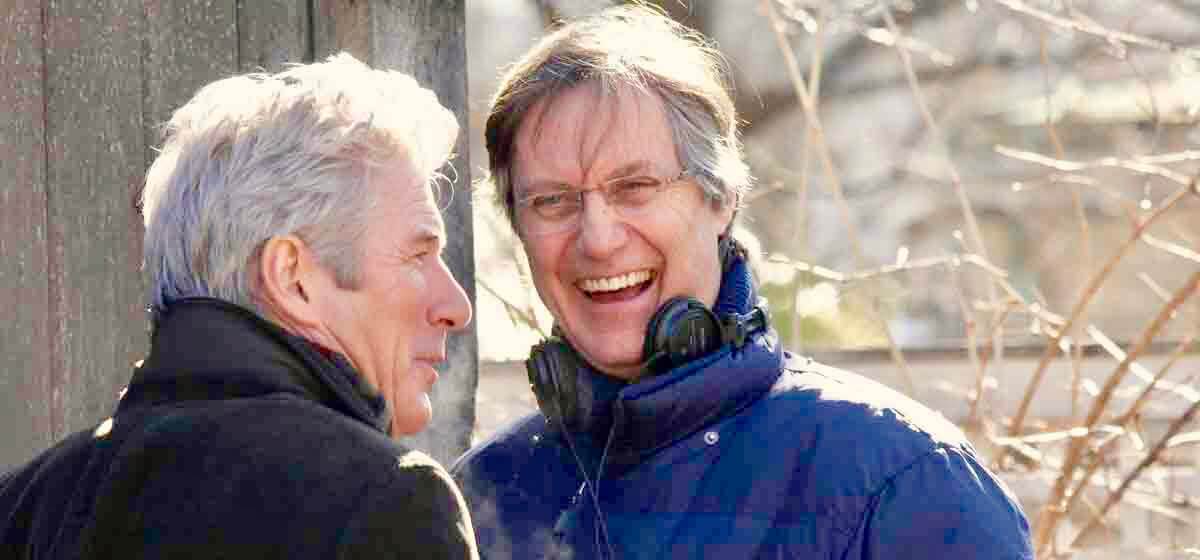
This timeless tale is directed by Academy Award nominee, Lasse Hallström. Hallström, who lived next to Richard Gere in upstate New York, had been wanting to do another film together since they worked on The Hoax in 2006. Richard sent Lasse the script for Hachi, and after reading it, he said, “It was really a gift for me because it’s such a wonderful story and, being the lover of dogs that I am, this was fantastic.
"My wife and I laugh about Richard all the time because he is in total control of what is going on but we don’t ever know what he’s doing or how he’s doing it.” This simple film with its sublime message needed the type of magic only Hallström could perform.
There was unanimous agreement amongst the Hachi cast and crew that Hallström is sort of a non-directing director, and an overall great guy. Jason Alexander plays Carl, the train station master who is a regular witness to Hachi’s life. His role as train station master could seem minor but Hallstrom has a way of gently pulling each character out to fulfill its full importance.
“Lasse trusts his actors,” says Jason Alexander. “You’re just kind of chatting and doing things and then all of a sudden you find that you are part of this image in his head and it’s this beautiful way he has of being invisible. His method of getting the actor to the place he wants them to be is very quiet and gentle and almost feels as if nobody is pulling you in any particular direction, but he is there and you know it at the end of the day.”

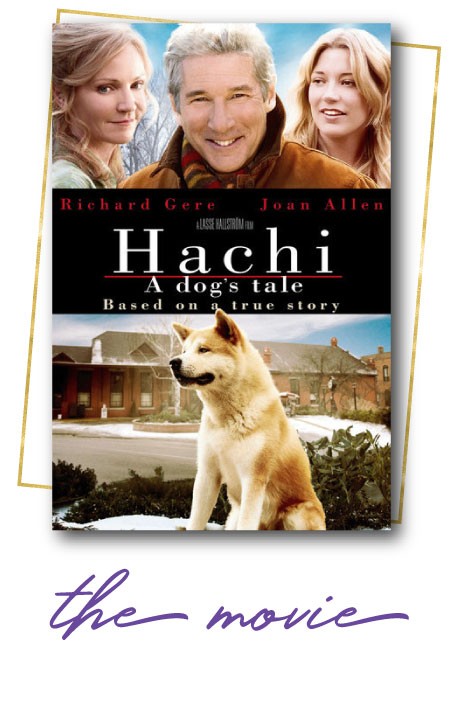
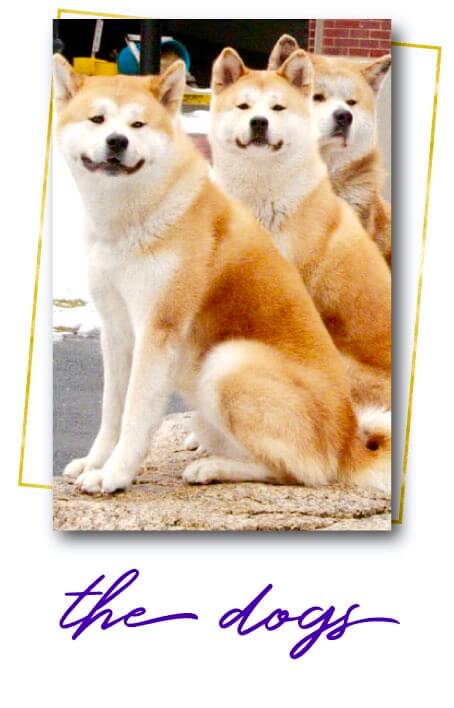
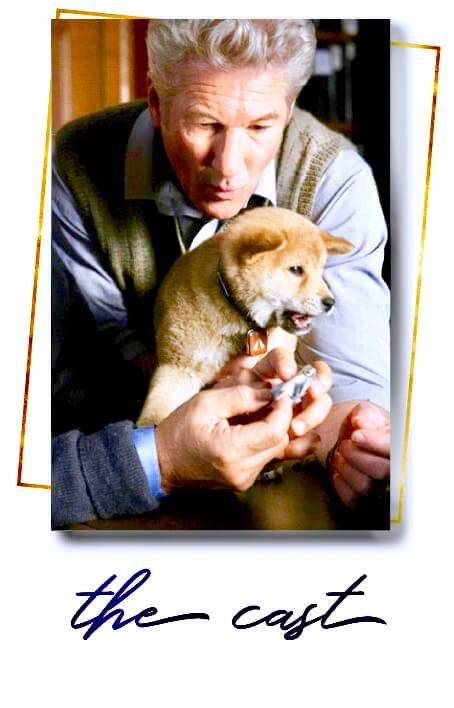


 >
>
